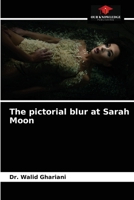Basic Concepts of Psychoanalytic Psychiatry
Select Format
Select Condition 
Book Overview
No Synopsis Available.
Format:Hardcover
Language:English
ISBN:0465005713
ISBN13:9780465005710
Release Date:December 1973
Publisher:Basic Books
Length:312 Pages
Weight:1.45 lbs.
More by Dr. Walid Ghariani
Customer Reviews
2 customer ratings | 2 reviews
There are currently no reviews. Be the first to review this work.






















